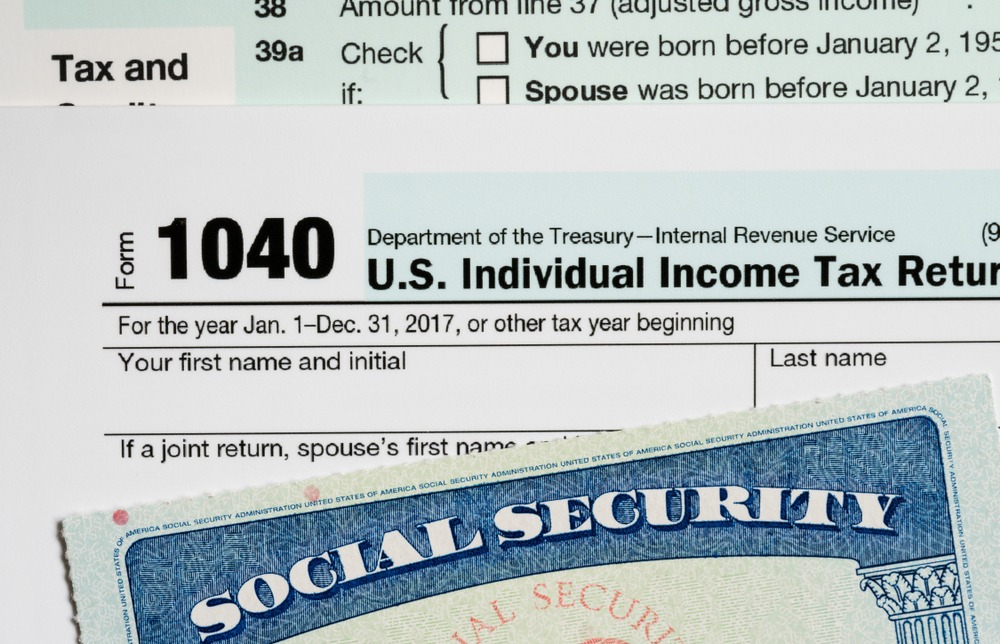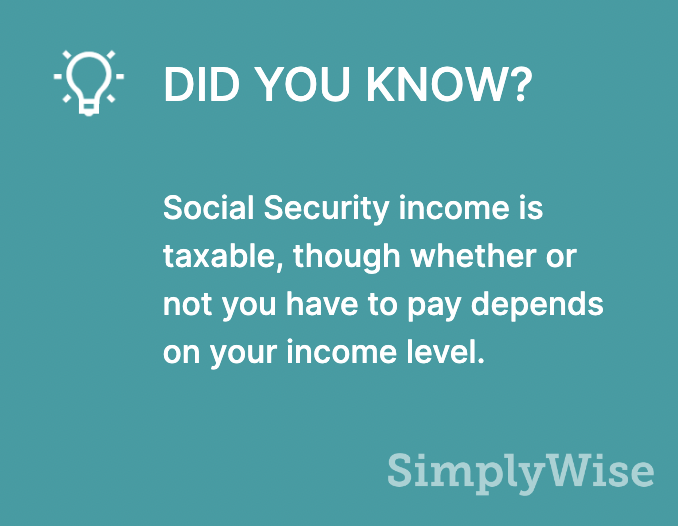
Where you choose to live, particularly in retirement, can have a big impact on your bottom line. Some states have higher property taxes than others. Some states tax things like food. Some states have no income tax at all, while others tax income including Social Security benefits.
Many Americans mistakenly believe that Social Security is not taxable, so it’s easy to be caught off guard if you aren’t careful in your planning. While some will not pay taxes on Social Security income, singles with combined income over $34,000 and married couples filing a joint return with combined income over $44,000 could be taxed on up to 85% of their benefits.
Obviously, choosing where to live in retirement can have a lot of financial consequences. That’s especially true for the majority of Americans over 65 who rely on Social Security benefits as a primary source of retirement income. Not knowing the rules around Social Security and taxes could cause pain around tax season. Additionally, misjudging the tax implications could cause critical errors in longer-term planning.
That’s why we’ve put together a list of how Social Security benefits are taxed in every single state.
37 states that don’t tax Social Security benefits
If you want to limit the taxes on your Social Security benefits as much as possible in your retirement years, you may want to consider relocating to one of the states that do not tax those benefits. Keep in mind you may pay more in other types of taxes, so you’ll want to take those into account as well in making your determination.

These are the states that do not tax Social Security benefits, regardless of income:
- Alabama
- Arizona
- Arkansas
- California
- Delaware
- District of Columbia
- Florida
- Georgia
- Hawaii
- Idaho
- Illinois
- Indiana
- Iowa
- Kentucky
- Louisiana
- Maine
- Maryland
- Massachusetts
- Michigan
- Mississippi
- Nevada
- New Hampshire
- New Jersey
- New York
- North Carolina
- Ohio
- Oklahoma
- Oregon
- Pennsylvania
- South Carolina
- South Dakota
- Tennessee
These are the 13 states that do tax Social Security benefits:
There are currently three states that tax Social Security benefits based upon the federal government’s tiered tax system, taxing up to 85% of a recipient’s total benefit based on total combined income. These states are Minnesota, North Dakota and West Virginia.
The other nine states that tax Social Security benefits do so in varied ways:
Colorado
Beginning at age 55, taxpayers in Colorado can exclude up to $20,000 of Social Security benefits and qualified retirement income. At age 65, that amount goes up to $24,000.
Connecticut
If you’re single and your federal AGI is less than $75,000, you won’t pay state tax on Social Security benefits in Connecticut. The same is true for joint filers making up to $100,000.
Kansas
If you make more than $75,000, whether filing as a single person or jointly, your Social Security benefits will be taxed.
Missouri
If your AGI is more than $85,000 as a single filer or $100,000 as a joint filer, you’ll pay taxes on your benefits.
Montana
The threshold for taxing Social Security benefits is significantly lower in Montana than in other states. If your AGI is higher than $25,000 for single filers or $32,000 for joint filers, your benefits will be taxed.
Nebraska
As long as you make less than $43,000 as a single filer or $58,000 as joint filers, your Social Security benefits will be tax exempt in Nebraska.
Rhode Island
Like many of the states that tax Social Security benefits, Rhode Island caps untaxed income at $85,150 for single filers and $106,400 for joint filers for 2019.
Vermont
Similar to Montana, Vermont taxes Social Security benefits at a fairly low amount: more than $25,000 for single filers, and more than $32,000 for joint filers.
Other considerations for maximizing your Social Security benefits
Remember, when you decide to take your Social Security benefits can also have a big impact on your ongoing finances. If you’re thinking about claiming Social Security benefits early, especially given the current economic climate, you may want to consider your other options before deciding.

In fact, there are important factors to weigh as you consider your retirement and when to claim. Your monthly benefit from Social Security can considerably vary depending on what age you choose to start your benefits.
- If you claim your monthly benefit before your Full Retirement Age (and you can start claiming your Social Security benefits as early as 62), your monthly benefit will be lower. However, you will receive it for a longer period of time.
- If you claim your monthly benefit after reaching your Full Retirement Age, you’ll receive what is called “Delayed Retirement Credits”. DRCs translate to a much larger monthly check (though for a shorter period of time).
When to begin collecting your benefits depends on your own unique situation, but considering the tax consequences is an important element. If you have health problems, a disability, or generally need the money right now, it can make sense to claim your benefits early.
On the other hand, if you are in a position where you can afford to wait, it can pay to delay receiving Social Security benefits past full retirement age.
Increasingly, online Social Security blogs and free calculators are emerging to help people avoid costly mistakes (we believe the SimplyWise Calculator is the best). Hopefully, with better education around the topic, Americans can maximize what they’ve earned.